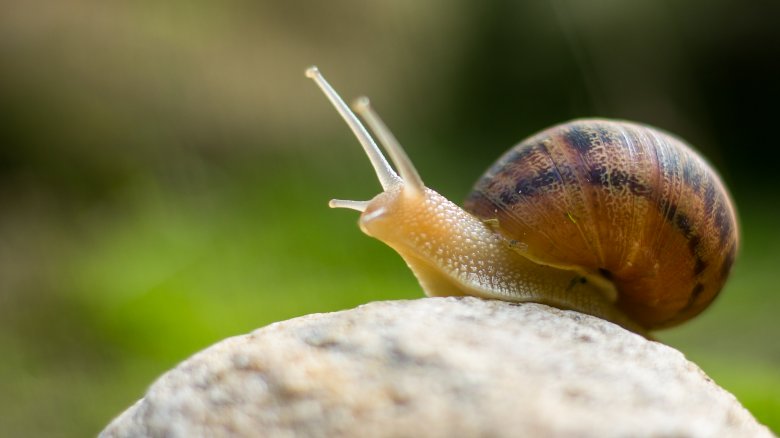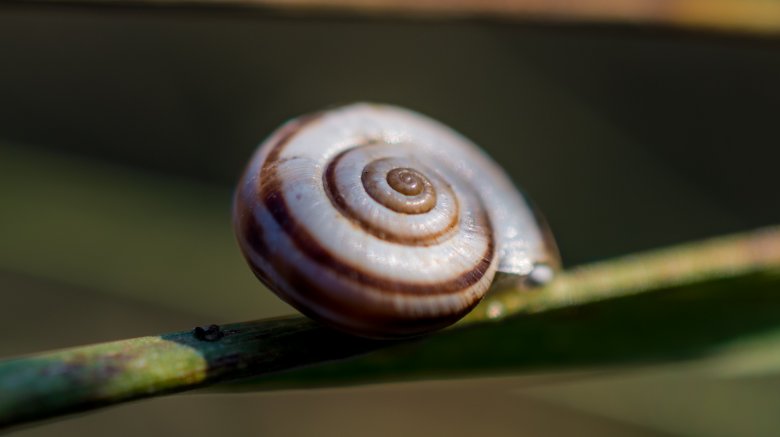How Long Do Snails Sleep?
Mattress companies, for some weird reason, seem to really enjoy telling us how long snails can sleep. Because who doesn't like thinking of snails and comfy mattresses at the same time? Anyway, the idea that snails can sleep for up to three years has been perpetuated by mattress companies all across the internet, but is it true? Yes and no.
Snails do sleep. In 2011, scientists at the University of Toronto found evidence that snails sleep in ways similar to other animals. The pond snails in the study would spend about 10 percent of their time on the side of the tank, with their feet "symmetrical and relaxed," their shells hanging loosely away from their bodies, and their tentacles partly retracted. Researchers concluded they were sleeping by tapping them gently and then timing their response — it took the sleeping snails about twice as long to react to the tapping than it took the active snails. Snails in the study slept for an average of 13 to 15 hours over a period of two to three days, followed by around 30 hours of non-stop activity.
Why do people think snails sleep for so long?
So where did the whole "snails sleep for three years" rumor come from? Snails, like bears, will hibernate, but that's not exactly the same thing as sleeping. Animals that are hibernating undergo dramatic physiological changes, while animals that are sleeping are undergoing mostly mental changes. Some snails, like the giant African land snail, will hibernate inside their shells for several months during the winter, and emerge when the weather is warmer. They may also "estivate," which is a dormant state some animals enter during hot, dry conditions. In this state, the snail produces a thin layer of mucus to protect their body's moisture. During a drought, they can maintain this state for up to three years.
Like all animals, though, sleep, hibernation, and estivation times and techniques vary from species to species, so it's really impossible to say how long snails do any of these things in general as a collective group. The fact that they sleep at all, though, is pretty amazing all by itself.

